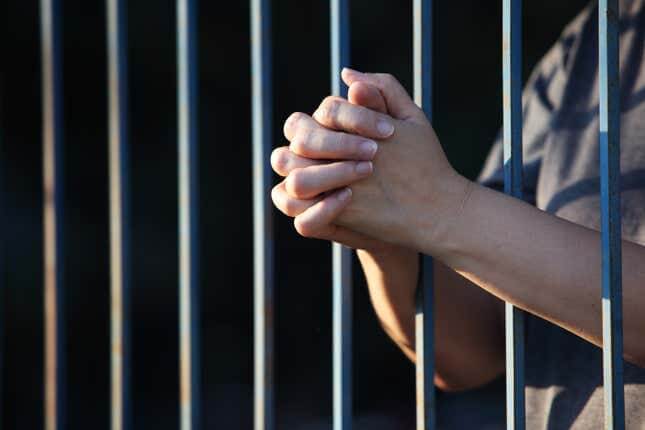The End of Roe Will Be Devastating for Incarcerated People
The prison system is already a terrible place to be pregnant, and it's about to get much worse.
AbortionPolitics

In 2018, Latice Fisher, a Black mother of three, was jailed after experiencing a stillbirth when prosecutors cited her online searches for abortion pills. In 2019, Marshae Jones, a Black woman in Alabama, was jailed in 2019 for miscarrying after being shot in the stomach. Last October, Brittney Poolaw, a member of the Wichita and Affiliated Tribes, was sentenced to four years in prison for a stillbirth after alleged substance use. And just last month, Lizelle Herrera in Texas was briefly jailed and charged with homicide for allegedly self-inducing an abortion.
As we stare down the likely end of Roe v. Wade, it’s been said before and bears repeating: Wealthy, mostly white people with privilege will still be able to get abortions; poor people of color and the most marginalized will bear the brunt of the government reducing our bodies to incubators and crime scenes. And in particular, it’s incarcerated people who stand to suffer the most, according to Urban Institute’s latest research highlighting the already devastating conditions people in the prison system face when trying to access basic reproductive care. The think tank is currently studying the effects of a recent California law to improve abortion access and other conditions for incarcerated pregnant people.
Right now, despite how Roe protects incarcerated people’s right to abortion, just 68% are aware they have this right. On top of this, there’s a long history of prison staff simply refusing pregnant inmates’ requests for abortion care, which is illegal. The cost of abortion is a big barrier, too: Two-thirds of prisons that allow abortions require the pregnant person to pay for both the abortion and all associated costs, including not just gas and transportation fees, but “officer time” for those who escort them. This is often impossible: In California, for instance, incarcerated people working full-time are paid $0.08 an hour, and at most $3.90 per day.
It certainly doesn’t help that prisons tend to be located in rural areas, far from the nearest abortion provider, and those seeking care are tasked with the sometimes impossible burden of locating a nearby clinic without resources or support.
-

-

-

-

-

-

-

-

-

-

-

-

-

-

-

-

-

-

-

-

-

-

-

-

-

-

-

-

-

-

-

-

-

-

-

-

-

-

-

-








































